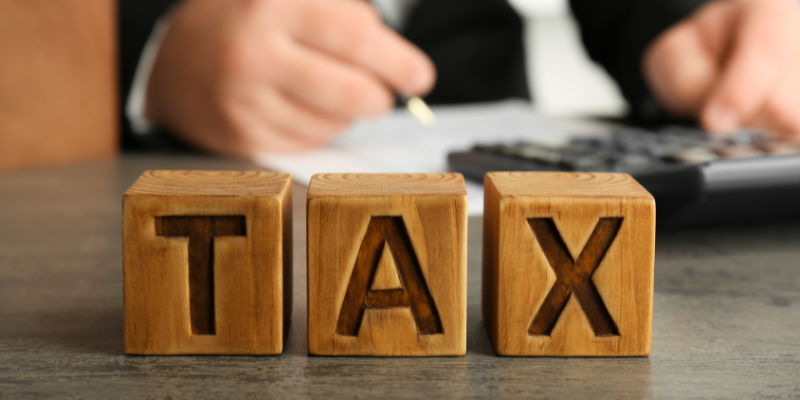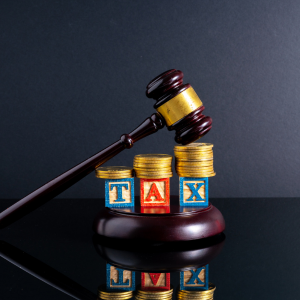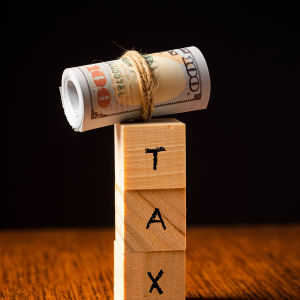
Understanding Federal Income Tax Rates and Brackets

Understanding federal income tax rates and brackets is essential for determining one’s tax liability. This is especially important for individuals involved in real estate transactions, such as determining how much transaction-related tax or capital gains tax might apply when buying or selling property in Dallas, TX.
The U.S. federal income tax system is progressive, meaning the tax rate increases as taxable income increases. Knowing which bracket your income falls into can help you plan ahead and better manage your overall financial obligations. Each income bracket corresponds to a different tax rate, which directly influences how much tax you pay, particularly on capital gains from real estate sales.
Understanding your federal income tax bracket is critical for Dallas real estate owners because the capital gains tax rate you may owe on a property sale depends heavily on your overall taxable income.
When estimating your total tax liability, it is important to consider how federal income tax obligations interact with local transaction-related fees. By understanding both federal income tax brackets and real estate-specific charges, property owners and investors can make better-informed decisions and stay compliant with all applicable regulations.
How State Income Tax Rates Affect Your Overall Tax Liability
Understanding how state income tax rates influence your overall tax liability is important for real estate owners in Dallas, Texas. While Texas does not impose a state income tax, residents must still account for local taxes and fees, including real estate transaction-related charges that can affect the total cost of property ownership or transfer.
In Dallas, real estate transaction taxes and closing-related fees are often tied to the property’s value and the nature of the sale. These expenses can significantly influence your financial planning, especially when combined with your federal tax obligations.
Although Texas residents do not pay state income tax, changes in federal income tax rates can still affect your disposable income and your ability to invest in or manage real estate effectively. As a result, property owners should evaluate both local transaction-related charges and their position in the federal tax system to form a complete picture of their tax liability.
Understanding these factors allows Dallas homeowners and investors to make more informed decisions, optimize their budgets, and plan their real estate strategies more confidently.
Calculating Property Tax in Major U.S. Cities
Calculating property tax in major U.S. cities such as Dallas, TX, requires a clear understanding of local tax rates and the assessment procedures used by municipal authorities.
In Dallas, property taxes significantly affect the overall cost of homeownership. The tax amount is determined by multiplying a property’s assessed value by the current tax rate, which is set by local government entities, including school districts and city departments.
Because these rates can change annually based on economic conditions and budgetary requirements, Dallas property owners should monitor rate adjustments and assess how they influence long-term financial planning. Staying current with property tax assessments allows homeowners to anticipate changes and budget effectively.
Reviewing your annual tax assessment and researching available exemptions or deductions can ensure you pay the appropriate amount while maximizing any relief programs the city offers. For additional guidance on real estate taxes or property transactions in Dallas, refer to related resources or consult a local property advisor.
Local Taxes: City and County Levies Explained
Understanding how local taxes work, both at the city and county levels, is essential for homeowners in Dallas, TX, to accurately estimate their house tax obligations. The City of Dallas sets specific tax rates to fund key municipal services such as public safety, infrastructure maintenance, and community programs.
In addition to city taxes, Dallas County imposes tax rates, which support broader county services like public health facilities, libraries, and transportation systems. These combined levies comprise a substantial portion of a homeowner’s total property tax bill.
To calculate house taxes accurately in Dallas, it’s important to factor in both city and county components, as each contributes to the final amount owed. Staying informed about updates to local tax policies or rate changes helps property owners avoid surprises during tax season.
By fully understanding how these local levies work and how they fit within Texas’s broader tax structure, real estate owners can plan more effectively, remain compliant with local regulations, and manage their long-term financial responsibilities.
Navigating Sales Tax on Online Purchases
Understanding sales tax on online purchases is important for Dallas, TX, real estate owners who want to calculate house taxes accurately. Texas tax laws can be complex, and local rates can affect the total cost of property-related purchases.

In Texas, sales tax varies by city and county, meaning buyers in Dallas may face specific rates that apply to online purchases tied to real estate activities. These may include materials, services, or administrative fees related to the transaction.
It’s also essential to consider additional charges, such as local surcharges, which could impact your budget.
Knowing how sales tax interacts with other property-related expenses can give you a clearer picture of your net proceeds if you plan to sell your home. For a smooth selling experience with a company that buys homes in Dallas and other cities in Texas, contact Southern Hills Home Buyers now.
The Role of Use Tax in Interstate Commerce
Understanding the role of use tax in interstate commerce is essential for real estate owners in Dallas, TX, especially when calculating house taxes. Use tax serves as a complement to sales tax, ensuring that purchases made across state lines are still subject to taxation when used within Texas.
This is particularly important for property owners who purchase building materials, appliances, or furnishings from out-of-state vendors and bring them into Texas for use in home construction or renovation. These transactions may trigger use tax obligations, adding to the overall cost of property ownership.
Tracking such purchases and understanding how use tax applies helps avoid unexpected liabilities. Given the complexity of tax regulations, maintaining thorough records and accurately applying the use tax is critical for integrating these expenses into broader financial planning.
By staying informed and compliant, real estate investors in Dallas can better manage their financial responsibilities and avoid surprises when navigating cross-border transactions.
The Impact of Transaction Taxes on Consumer Goods Pricing
Transaction taxes play a significant role in shaping the pricing of consumer goods, and their influence can also be seen in the real estate market of Dallas, TX. While these taxes are often associated with products such as fuel, tobacco, and alcohol, certain transaction-based fees and levies may also apply to property sales.
In Dallas, local fees similar to transaction taxes may be imposed based on a property’s sale price. These charges can increase closing costs for both buyers and sellers. As a result, these added expenses must be considered during budgeting and negotiations.
Real estate owners must consider these costs when setting financial plans or making deal decisions. Higher total expenses can reduce buyer demand, while sellers may need to adjust their pricing to stay competitive.
The effects of these taxes extend beyond initial property purchases. They can influence renovation decisions, long-term investment potential, and property values. By understanding how transaction-related taxes interact with market trends, real estate professionals and homeowners in Dallas can make informed financial decisions.
Corporate Tax Rate Trends and Business Implications

In recent years, corporate tax rate trends have significantly influenced the business landscape in Dallas, TX, particularly for real estate owners seeking to manage transaction taxes efficiently. Understanding these trends is essential for property investors and developers who must navigate the complexities of both local and federal tax regulations.
As companies aim to maximize profitability while remaining compliant with evolving tax policies, fluctuating corporate tax rates can directly impact investment strategies. Dallas real estate owners are increasingly concerned about how these tax dynamics affect financial planning and potential returns on investment.
Staying informed about changes in the corporate tax environment is critical for making well-informed decisions related to property transactions and transaction tax calculations. Businesses must also account for how shifts in taxation can influence operating expenses and long-term growth within the highly competitive Texas real estate market.
By analyzing corporate tax trends and aligning them with local transaction tax requirements, real estate stakeholders can better anticipate challenges and uncover opportunities to optimize their tax obligations and investment outcomes.
What Is the Transaction Tax Rate in Texas?
In Texas, the transaction tax on real estate, commonly referred to as a transfer tax in other states, is notably absent at the state level. Unlike many states that impose a tax on the sale or transfer of real property, Texas does not charge a state-mandated transaction or transfer tax on real estate deals.
This tax-friendly environment makes Texas, and cities like Dallas, especially attractive to property owners and investors looking to buy or sell without the added cost of a transfer tax. However, while the state does not impose this type of tax, real estate transactions may involve other costs such as title fees, recording fees, and local assessments that vary by county or municipality.
Understanding these details allows real estate professionals and homeowners in Dallas to manage transaction expenses more accurately, make informed decisions, and maximize their investment potential.
How Is Transaction Tax Calculated?
A few key factors to consider when determining how much transaction tax is owed on a real estate transaction in Dallas, TX. This type of tax, often called a “transfer tax,” is typically based on the property’s sale price or fair market value.
In Dallas, local government guidelines influence the presence and calculation of applicable transaction-related fees. While Texas does not impose a state-level real estate transaction tax, some counties or municipalities may include fees during the transfer process.
Then, applying the current transaction tax rate set by Dallas authorities will yield the amount due at closing. Property owners must stay informed about any updates or changes in local tax rates to ensure compliance and avoid potential penalties.
Utilizing online tools or working with a knowledgeable real estate expert can simplify the process and help ensure all calculations comply with Dallas’s specific tax requirements. For a faster, more straightforward sale, consider connecting with investor home buyers in Garland and nearby cities in Texas.
Need to sell your home? Whether you’re looking to sell fast, skip expensive repairs, or avoid the usual hassles, we’re here to help. Call us at (214) 225-3042. We provide fair cash offers, take care of all the details, and make the process smooth and stress-free.
Helpful Dallas, TX Blog Articles
- Affordable Housing Options In Dallas, TX
- Do I Sell My House Before Buying in Dallas
- Can An HOA Take Your House in Dallas
- Is Dallas, TX, A Good Place to Live?
- Effortlessly Calculate House Excise Taxes In Dallas, TX
- Can I Sell My House If I Am in Forbearance in Dallas, TX?
- How to Avoid Closing Costs in Dallas, TX
- How to Sell an Apartment in Dallas, TX
- FSBO Costs in Dallas, TX
- How To Sell an Inherited House in Dallas
- Selling My House on My Own (For Sale by Owner)
- How To Avoid A House Foreclosure In Dallas
- Should I Remodel My Kitchen Before Selling in Dallas, TX
- What Happens to My Escrow When I Sell My House in Dallas, TX
- Can I Sell My Home After 1 Year in Dallas, TX

| SALES-TAX | VEHICLE | SALE OF GOODS | LONE STAR STATE | GENERAL EXCISE TAX | MOTOR VEHICLE |
| STATE SALES TAX | PAYCHECKS | INCOME TAXES | SPV | FEDERAL INCOME TAXES | U.S.A. |
| COMPTROLLER | COMPTROLLER OF PUBLIC ACCOUNTS | TEXAS COMPTROLLER OF PUBLIC ACCOUNTS | SMARTASSET | MONEY | FINANCIAL ADVISOR |
| AVERAGE | ALCOHOLIC BEVERAGE | WHOLESALERS | VIRGINIA | VERMONT | SAVINGS ACCOUNT |
| RETAILER | PAYMENTS | NEW HAMPSHIRE | MORTGAGE | INSURANCE | PREMIUMS |
| INFORMATION | HAMPSHIRE | FILING STATUS | FEEDBACK | DELAWARE |
